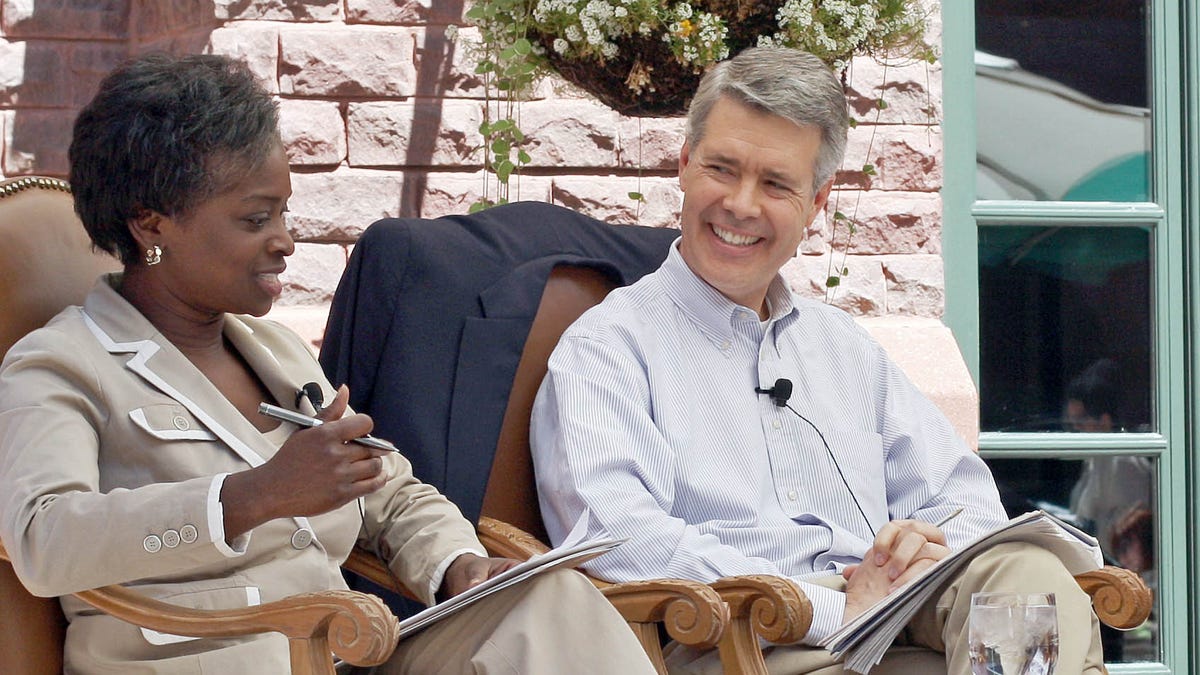FCC commissioner: BART critics may be right
Commissioner Robert McDowell says critics have raised "very valid points" about the transit agency's decision to cut cell service to prevent a planned protest, but the FCC's probe is ongoing.

ASPEN, Colo.--Criticisms aimed at the San Francisco Bay Area's subway system for temporarily pulling the plug on cellular service have raised "very valid points," a federal regulator said.
FCC Commissioner Robert McDowell said that the agency is still investigating what happened when BART pulled the plug on cell service on August 11 in four subway stations in downtown San Francisco in anticipation of a protest. (A BART board meeting is currently under way--check back later for CNET coverage.)
"What the heck happened, what precedent does it set, were there any laws that were broken?" McDowell said at a technology conference here yesterday. "Let's continue with the investigation. We'll draw conclusions after we have all the facts."
The August 11 protest was intended to call attention to the fatal shooting of an apparently homeless man named Charles Blair Hill.
The protest might normally have gone unnoticed outside the San Francisco metro area. That's what happened after a July 11 protest, during which train doorways were held open and some stations were shut down. But disabling underground cell service--a move more associated with authoritarian regimes in the Middle East than supposedly progressive California cities--drew national attention and criticism.
For its part, BART, which stands for Bay Area Rapid Transit, said in an open letter to its customers on August 20 that: "BART's temporary interruption of cell phone service was not intended to and did not affect any First Amendment rights of any person to protest in a lawful manner in areas at BART stations that are open for expressive activity. The interruption did prevent the planned coordination of illegal activity on the BART platforms, and the resulting threat to public safety."
Federal courts have, however, curbed the ability of state and municipal governments to shut down communications on some types of government property. If BART's subway platforms fall into the legal category of a "limited public forum," then the agency would be subject to strict First Amendment scrutiny.
Put another way: BART is under no legal obligation to provide phone service. But once it chooses to, the First Amendment applies.
Federal telecommunications law, which is overseen by the Federal Communications Commission, may also prevent BART from disabling cell phone service. (BART says it turned off the electricity for about four hours.)
In a blog post yesterday, Harold Feld, the legal director of the Public Knowledge advocacy group, argued that BART violated federal law. The legal way to disable phone service, he said, would have been for BART to go to the California Public Utility Commission and obtain a legal order.
Here are some excerpts from Feld's analysis of the Telecommunications Act:
For those who think cell phones are somehow not real phones for legal purposes, I assure you they are. Section 332(c) of the Act defines "Commercial Mobile Radio Service" aka CMRS aka cell phones as Title II telecommunications common carriers. To translate for you non-telecom folks, your wireless phone is as much a telephone as your landline phone...
So interrupting access to a cell phone network is not about tweets and Facebook and other Title I/information services. Shut off a cell phone node and you are messing with a phone system. Which brings me to the next point: the desire of law enforcement to mess with phone service is not new. We have lots of settled law on this that you have a right to phone service, and that right applies just as much in wireless as in traditional wireline...
Nor does BART need to be a network operator itself to fall within the jurisdiction of the statute. Mind you, if they are it makes direct jurisdiction easier. Section 214(a) prohibits a network operator from discontinuing Title II phone service without notifying the FCC first. Section 216 applies if same rule to any "receiver or trustee," and Section 217 applies the same rule to any "agent." So if BART acted as a network operator, or on behalf of a network operator, they are directly subject to Section 214(a) and the relevant provisions of the FCC and the CPUC directed to carriers and prohibiting a unilateral interruption of service without following the appropriate procedures.
Mignon Clyburn, another FCC commissioner who spoke here, also raised concerns about the BART mobile-phone shutdown. She noted that BART turned off power instead of using a cell phone jammer, which would have implicated a different section of the FCC's rules.
If "we need to deal with" BART officials on this topic, "we know what our authority is," Clyburn said.

